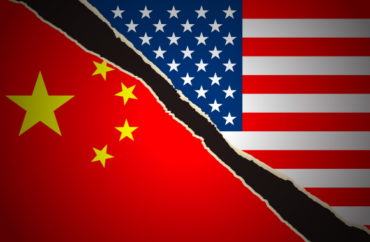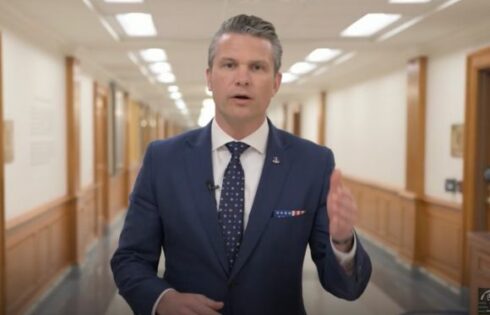
Sponsor warns of ‘ethical and intellectual compromises’ that come with partnering with China
The Cornell Faculty Senate recently passed a resolution that condemned the Chinese Communist Party and asked the university to protect freedom of academic expression at home and abroad.
The Faculty Senate passed Resolution 184 in light of the Chinese Communist Party’s politically and socially repressive behaviors and maintained that Cornell University administration “should take all necessary steps to ensure that academic freedom and freedom of speech” in both domestic and international academic programs.
Resolution 184 acknowledged Cornell’s “rapidly expanding academic programs” in China, as well as the Chinese Communist Party’s actions that have “strongly suppressed and punished political dissent.” To this end, the resolution “strongly condemns political, social, and cultural repression.”
It further urged Cornell administration to “take all necessary steps to ensure that academic freedom and freedom of speech” is preserved for Cornell students and faculty worldwide.
Professor Richard Bensel, the original sponsor of Resolution 184, told The Cornell Daily Sun that Cornell University administration “has not released any statements” on the Chinese Communist Party’s “repressive and authoritarian actions,” and that Cornell’s academic programs in China “lend legitimacy to the People’s Republic [of China].”
The College Fix reached out to the political science professor via email to ask what he hoped the Cornell administration would do in response to Resolution 184 and what factors he saw to be China’s greatest leverage on Cornell.
Bensel stated that he hoped Cornell administration would “engage the Faculty Senate in an open and frank debate” about Cornell’s involvement with the Chinese Communist Party. He also hoped that the administration would engage in open discussion about “the ethical and intellectual compromises that are entailed by that involvement [with China].”
In terms of leverage on the university, Bensel expressed concern about the Brooks School of Public Policy, at which 48 percent of enrolled students are from the People’s Republic of China. His concern was heightened by the fact that “the large majority” of these students “pay full tuition.”
Because of this, “[t]he Brooks School’s financial existence rests on these students,” the political scientist said.
The Fix also reached out to Professor Buz Barstow, an assistant professor in the Department of Biological and Environmental Engineering at Columbia. Barstow was originally a sponsor of Resolution 184, but later decided to vote against it.
Barstow, in a phone interview with The Fix, cited “deep concerns about the authoritarian nature of the Chinese government” for his original sponsorship of Resolution 184.
However, he ascribed his eventual decision to vote against the resolution to his troubles about its potential to increase anti-Asian hate.
Barstow told The Fix that after Resolution 184 was proposed in the Faculty Senate, he “definitely got that sense [that Chinese faculty felt singled out] when this…was introduced into the Senate.”
He said for this reason he “figured this [resolution] could potentially be quite contentious.”
MORE: Alabama university closes CCP-linked Confucius Institute
When asked about his colleague Bensel’s stance on this resolution, Barstow noted that he strongly respected Bensel, lauding him as a “deep thinker” and a “voice of conscience” for the Faculty Senate. He also complimented Bensel’s prudence, saying that he “adds a lot of nuance and balance to the debate” among the faculty.
“[The People’s Republic of China]’s not going away… fortunately or unfortunately, whichever way you look at it,” Barstow commented when asked for his opinion on alternative solutions on handling Chinese influence and repression. “What is the best way to deal with the People’s Republic of China? Is it totally to ostracize it? Or is it to engage with it?…Dialogue is the way to deal with it.”
The vice provost for international affairs said the university ensures academic freedom is protected in all relationships.
“International engagement is essential to understanding and appreciating other contexts, cultures and perspectives,” Wendy Wolford told the Daily Sun. “Without this connectivity, we cannot address the growing number of global challenges we face, such as climate change, inequality and political authoritarianism.”
“The Global Hub initiative was created in this spirit: to expand well-designed student study abroad exchanges and support collaborative faculty-led international research opportunities,” she said.
MORE: Stanford took in more than $27 million from China since 2021
IMAGE: R_Rice/Shutterstock
Like The College Fix on Facebook / Follow us on Twitter






Please join the conversation about our stories on Facebook, Twitter, Instagram, Reddit, MeWe, Rumble, Gab, Minds and Gettr.